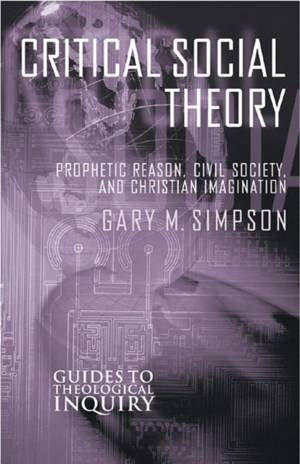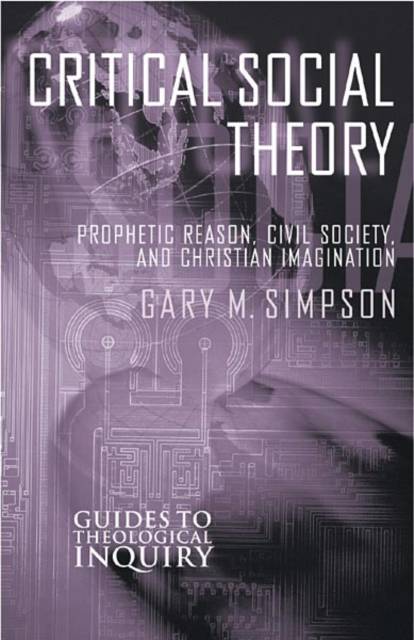
- Afhalen na 1 uur in een winkel met voorraad
- Gratis thuislevering in België vanaf € 30
- Ruim aanbod met 7 miljoen producten
- Afhalen na 1 uur in een winkel met voorraad
- Gratis thuislevering in België vanaf € 30
- Ruim aanbod met 7 miljoen producten
Zoeken
€ 29,45
+ 58 punten
Omschrijving
Critical theory explained and espoused Simpson ably introduces critical social theory, the German-born intellectual movement that has spawned sharp criticisms of modernity, its use of reason, and our highly technological, bureaucratic culture. Part 1 recounts the emergence of critical social theory within the Frankfurt School of Social Research and the theological stirrings that the Frankfurt project sparked, especially in Paul Tillich. Part 2 explores Jürgen Habermas' reconception and expansion of critical social theory, especially his ideas about hermeneutics, praxis, communicative action, and civil society as the locus of prophetic social movements. Finally, in Part 3 Simpson shows how Christian theology employs critical social theory for the tasks of prophetic reason in a global civil society. Simpson's work is at once a programmatic introduction and a creative theological proposal for public theology.
Specificaties
Betrokkenen
- Auteur(s):
- Uitgeverij:
Inhoud
- Aantal bladzijden:
- 178
- Taal:
- Engels
- Reeks:
Eigenschappen
- Productcode (EAN):
- 9780800629168
- Verschijningsdatum:
- 1/11/2001
- Uitvoering:
- Paperback
- Formaat:
- Trade paperback (VS)
- Afmetingen:
- 140 mm x 216 mm
- Gewicht:
- 276 g

Alleen bij Standaard Boekhandel
+ 58 punten op je klantenkaart van Standaard Boekhandel
Beoordelingen
We publiceren alleen reviews die voldoen aan de voorwaarden voor reviews. Bekijk onze voorwaarden voor reviews.











